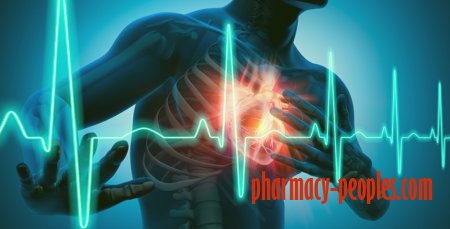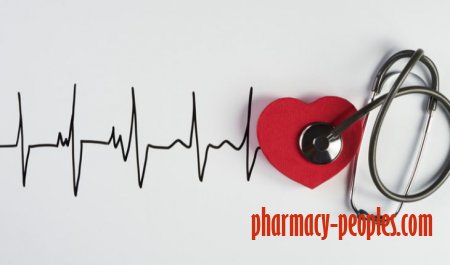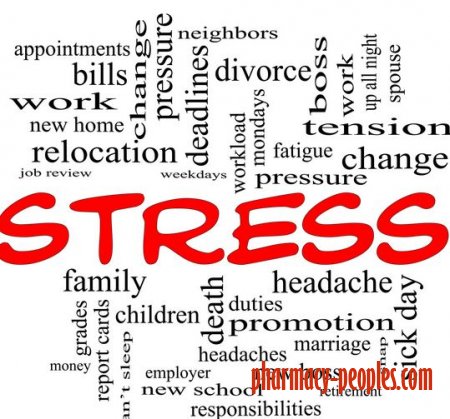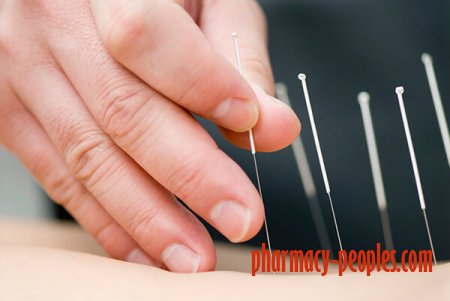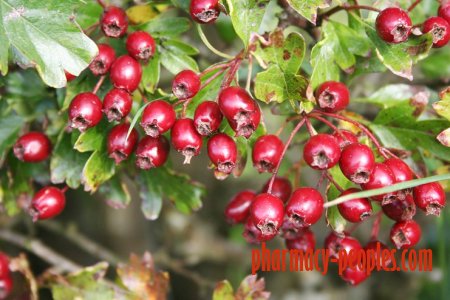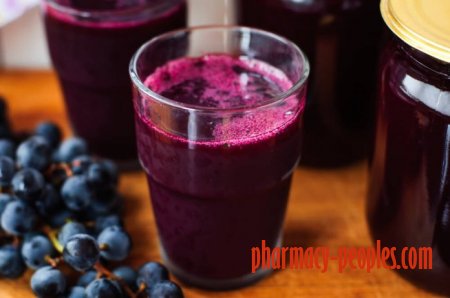Atrial fibrillation. Natural Treatment
Atrial fibrillation is an irregular and often rapid heart rate that can increase your risk of stroke, heart failure and other heart-related complications.
During atrial fibrillation, the heart's two upper chambers (the atria) beat chaotically and irregularly — out of coordination with the two lower chambers (the ventricles) of the heart. Atrial fibrillation symptoms often include heart palpitations, shortness of breath and weakness.
Episodes of atrial fibrillation can come and go, or you may develop atrial fibrillation that doesn't go away and may require treatment. Although atrial fibrillation itself usually isn't life-threatening, it is a serious medical condition that sometimes requires emergency treatment.
It may lead to complications. Atrial fibrillation can lead to blood clots forming in the heart that may circulate to other organs and lead to blocked blood flow (ischemia).
Treatments for atrial fibrillation may include medications and other interventions to try to alter the heart's electrical system.
Symptoms
Some people with atrial fibrillation have no symptoms and are unaware of their condition until it's discovered during a physical examination. Those who do have atrial fibrillation symptoms may experience signs and symptoms such as:
- Palpitations, which are sensations of a racing, uncomfortable, irregular heartbeat or a flip-flopping in your chest
- Weakness
- Reduced ability to exercise
- Fatigue
- Lightheadedness
- Dizziness
- Confusion
- Shortness of breath
- Chest pain
Atrial fibrillation may be:
Occasional. In this case it's called paroxysmal (par-ok-SIZ-mul) atrial fibrillation. You may have symptoms that come and go, lasting for a few minutes to hours and then stopping on their own.
Persistent. With this type of atrial fibrillation, your heart rhythm doesn't go back to normal on its own. If you have persistent atrial fibrillation, you'll need treatment such as an electrical shock or medications in order to restore your heart rhythm.
Long-standing persistent. This type of atrial fibrillation is continuous and lasts longer than 12 months.
Permanent. In this type of atrial fibrillation, the abnormal heart rhythm can't be restored. You'll have atrial fibrillation permanently, and you'll often require medications to control your heart rate.
When to see a doctor
If you have any symptoms of atrial fibrillation, make an appointment with your doctor. Your doctor may order an electrocardiogram to determine if your symptoms are related to atrial fibrillation or another heart rhythm disorder (arrhythmia).
If you have chest pain, seek emergency medical assistance immediately. Chest pain could signal that you're having a heart attack.
Causes
Some triggers for A-fib include:
- fatigue
- air pollution
- caffeine
- some over-the-counter, prescription, and recreational drugs
5 Surprising Triggers for Afib
Atrial fibrillation, or afib, is a condition that affects your heartbeat and can lead to an increased risk of stroke. The good news is that you can help prevent it. Learn some of the lesser-known triggers.
From its triggers to its symptoms, atrial fibrillation (afib) can be unpredictable.But most people are able to identify at least some of their afib triggers, and this knowledge can help decrease the frequency of attacks and lower your risk for stroke.
You’re probably aware of common afib triggers, including alcohol, smoking, exercise, and over-the-counter cough and cold medications. But have you considered these five lesser-known triggers that can be just as harmful to your heart?
1. Mental, Emotional, and Job-Related Stress
The heart is often a manifestation of what’s going on in our lives. This can include situations that cause stress, anxiety, depression, and anger. That’s why it’s important to pay attention to all aspects of health, including your physical, mental, emotional, and relationship health.
2. Air Pollution and Environmental Factors
Although the research is still emerging, some studies have demonstrated an association between air pollution and a higher risk of afib. A study published June 2017 in the International Journal of Environmental Research and Public Health showed that increased exposure to air pollutants within the previous 24 hours was associated with a greater number of afib-related emergency room visits.
3. Certain Foods and Beverages
The triggers for afib can be very specific to the patient, notes Mark (Nathan A.)_Estes, MD, a cardiologist at the University of Pittsburgh Medical Center. “In some cases, patients experience increased afib episodes after eating cold foods like ice cream or cold drinks.” Other patients report more afib episodes after eating certain types of cuisines, such as Chinese food. The main thing is to be aware of your specific food-related triggers. It may help to keep a food journal in order to know which foods may be associated with your episodes.
For people who enjoy a cup of coffee, you may be in luck. Healthcare providers have historically warned people with afib about the potential harms of drinking caffeinated beverages. But a comprehensive study published in April 2016 in the Journal of the American College of Cardiology: Clinical Electrophysiology, found that tea and coffee are safe for people with afib when consumed at moderate levels. In some cases, tea and coffee may actually be protective against afib.
4. Too Much Physical Activity or the Wrong Types of Exercise
More exercise, however, is not always better. In fact, vigorous exercise can actually cause afib. Examples of vigorous exercises include strenuous hiking, long-distance running, or very high impact aerobic exercises. The sweet spot appears to be somewhere in the middle — regular but moderate exercise.
If you’re considering a new exercise program, talk to your healthcare providers about the best plan for you. Many people find that walking is a good start. You may also want to consider a heart rate monitor to ensure that you stay in a safe heartbeat range. Another useful guide is whether you can carry on a normal conversation during exercise; if you can’t, the intensity is probably greater than moderate.
5. Sex Hormones
Some research shows testosterone in men is associated with a higher risk of afib, whereas a study published in July 2018 in the European Journal of Cardiology shows the opposite. And a study published in October 2017 in Endocrine observed that higher levels of bioavailable testosterone in men was associated with a higher risk of afib. For women in the study, however, higher levels of bioavailable testosterone were associated with a lower risk of afib.
Natural treatments
These may include acupuncture, yoga, getting enough sleep, and reducing or minimizing stress.
Acupuncture
Acupuncture, a traditional Chinese medicine approach, may help those with A-fib control their heart rates, according to a study published in the journal Evidence-Based Complementary and Alternative Medicine.
Acupuncture involves applying small needles to specific points on the body to promote energy flow. The acupuncture point is linked with controlling heart rhythm problems, but more research is still needed.
Yoga
Yoga is the practice of deep breathing, meditation, and body postures. Regular yoga practice for 1 hour, 3 days a week has been shown to reduce the amount of A-fib episodes, according to one study.
While the exact way that yoga reduces the incidence of A-fib isn't known, researchers suggest that yoga could reduce stress and inflammation that damages the heart as well as reduce a person's resting heart rate.
Foods Rich In Magnesium
Magnesium therapy is often prescribed by doctors themselves as it is highly effective than any kind of drugs that are prescribed for you. Make sure that you include lots of food items like banana, dry figs etc. and grains like pearl barley, buckwheat, oats, prune, almond, pine nuts and cashew in your diet every day.
Include fish in your meals such as tuna and halibut as it is loaded with high levels of magnesium. This will help you to maintain the magnesium levels at the optimum, which are highly beneficial for your heart.
Hawthorn Berry
Ancient medicines certify Hawthorne berry extracts as a perfect natural cure for atrial fibrillation. This cure helps to regulate the heartbeat by slowing down the faster beats of the heart, diminishes the palpitations and reduces the premature beats.
This berry extract also makes your heart strength better and enhances the quality of all the heart vessels surrounding the chamber. You can take this berry extract in the form of pills or as a tincture every day after taking professional advice to make sure that you are consuming the right way.
Motherwort
This herb contains a bunch of purple flowers found in European regions. This herb is widely used as a cardiac tonic and is a nerve medicine. Traditionally people used this herb to treat the nervous heart issues, overactive thyroid gland, anxiety and blood pressure.
This plant is an ideal natural cure for atrial fibrillation as it is equipped with alkaloids, tannins, iridoid glycosides, phenolic acids and flavonoids. Apart from these, this herb also contains anti-inflammatory and anti arrhythmic qualities that make it responsible to calm down your heart by bringing down the neutron receptors in your body.
Choose Foods With Good Fats
Eat foods that have mono saturated and polyunsaturated fats as it can make your heart very healthy. Include olive oil, canola oil, avocado, nuts and seeds, which have good fats in it.
Grape Juice
Drink fresh grape juice every day that is made with ripe grapes after removing its stem and seeds as this fruit is a best natural cure for atrial fibrillation. The presence of flavonoids, polyphenols and anthocyanins found in this fruit offers excellent abilities to treat this type of heart disease. You can ask your doctor for advice about taking this juice every day to make sure that it is safe.
Substances to avoid
Lifestyle habits and eating certain foods and drinks can potentially trigger episodes of A-fib. One such habit is smoking. Other examples include:
Drinking alcohol excessively: no more than 1 to 2 alcoholic drinks for a man each day and no more than 1 drink per day for women. People older than age 65 should have no more than 1 alcoholic drink per day. Moderate to heavy alcohol drinkers were 1.35 times more likely to have A-fib than non-drinkers.
Consuming excess amounts of caffeine. About 400 milligrams of caffeine is a safe upper limit for adults on a daily basis. This is roughly the same as four brewed cups of coffee.
Taking cough and cold medicines that contain stimulants, such as dextromorphan or promethazine-codeine cough syrup.
Eating more than four servings of "dark" fish per week. According to one study, eating more than 4 servings of dark fish, such as salmon, swordfish, bluefish, mackerel, and sardines can actually increase the risk for A-fib.
Some people are more sensitive to medications and additives than others. If a person notices that eating a certain food or drink increases the incidence of irregular heart rhythms, they should talk to their doctor.
Lifestyle tips
Many people with A-fib have a condition called sleep apnea. The most common form is obstructive sleep apnea, which causes a person to stop breathing for brief periods while they are asleep.
Sleep apnea can weaken the heart because the heart has to start working harder to make up for the lost oxygen when a person stops breathing.
Symptoms that suggest a person could be experiencing sleep apnea include:
being told they snore
waking themselves up at night with snoring or irregular breathing
having excessive daytime sleepiness
Anyone with these symptoms should see their doctor or a sleep medicine specialist.
A healthful lifestyle overall tends to promote heart health. As a result, a person may experience a reduced incidence of A-fib or lessen the risk of their symptoms getting worse.
Alcohol and coffee
Healthful habits to follow for people with A-fib include avoiding excess caffeine and alcohol.
Examples of healthful habits to follow include:
eating a healthy diet filled with fruits, vegetables, and whole grains
exercising regularly
managing high blood pressure through both medications and natural treatments, if desired
avoiding excess intakes of alcohol and caffeine
managing long-term conditions that could contribute to or worsen A-fib
Long-term conditions that could contribute to A-fib include high blood pressure, sleep apnea, thyroid disease, diabetes, and chronic lung disease.
According to the American Heart Association, a person with A-fib is five times more likely to have a stroke than someone who does not have a history of heart disease. By working to prevent cardiac complications, a person can live a healthier life with A-fib.
